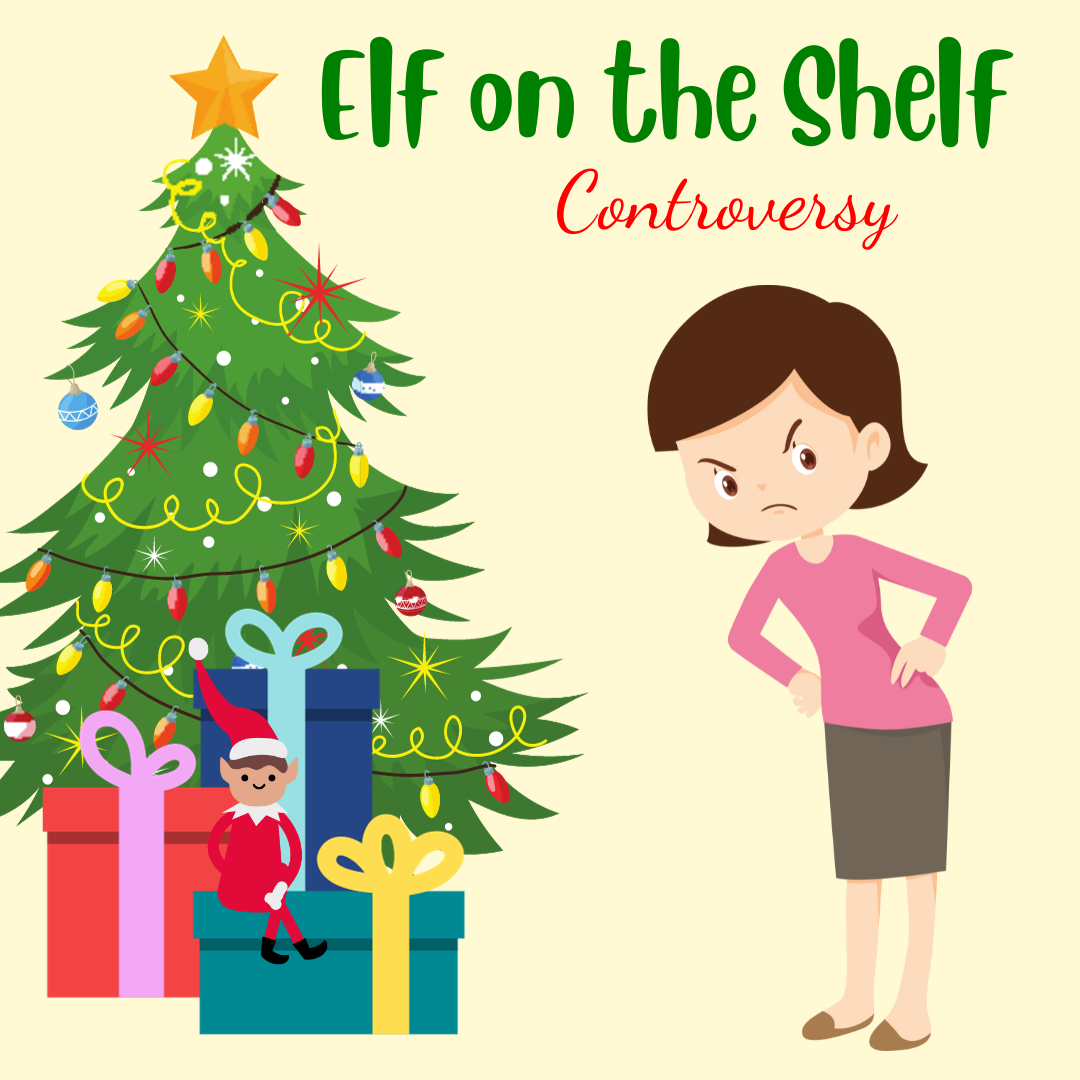The Controversial Toy: The Elf on the Shelf
Citlali Zavala, News Editor December 1, 2023
Over 17.5 million Elf on the Shelf toys have been adopted into family households worldwide. Throughout the years, the Elf on the Shelf has become a rapidly growing tradition in family households. Elf on the Shelf is a magical elf who comes to life each night, moving to new locations and reporting to Santa about the child’s behavior. The toy has become a phenomenon due to children excitedly waking up each morning to see the elf’s new location. Parents have expressed their creativity through the fun and creative sceneries where the elf is placed.
However, in recent years, a concern has risen. The toy has been rumored to be teaching children incorrect behavior.
Some parents have spoken out and believe the toy is invasive, creepy, and dangerous due to wrong teachings. Parents have feared children are taught the wrong lesson by following the popular Christmas tradition.
Parents are preventing the toy from entering their household as well as forbidding the toy to become an annual tradition. The Elf on the Shelf encourages mischievousness rather than good behavior. The Elf on the Shelf is an authority figure, replacing the authority of parents and threatening the trustworthiness of parents. Overall, the Elf on the Shelf encourages gullibility in children rather than critical thinking. Children assume it is correct for their actions to be governed by a higher force at all times.
The Elf on the Shelf monitors children’s behavior, as well as deciding the child’s place on the naughty or nice list. A child’s main focus is behaving well to ensure they receive a Christmas present rather than understanding the bigger picture.
Counselor Arlene Quinonez, a mother herself, has expressed dislike regarding the controversial topic of the Elf on the Shelf.
“One, it’s focused on getting, rather than giving, and I feel like during the holiday it should be more about giving and being with family, so it takes away from the focus,” Quinonez said.
Children are not realizing the importance of holidays, but rather focusing on the reward. The idea that a person’s action will be rewarded will be developed; as a result, children won’t show honest empathy, but instead lie to get their way.
“Also, I’ve seen that the elf is doing sneaky things, so that promotes sneakiness for kids, and promotes behavior that is not acceptable at times,” Quinonez said.
Elves are often placed in “creative” scenerios, which allows children to believe the elf has made a mess; as a result, they have the authority to copy the elf’s action without consequences. If parents are setting certain rules and expectations, the elf being mischievous would send the opposite message.
Senior policy analyst at the ACLU Speech, Privacy and Technology Project, Jay Stanley, expressed his opinion on the controversial topic of the Elf on the Shelf, in the article “Beware the Elf on the Shelf, Privacy Watchdogs Warn.”
“I consider success as a parent to be teaching my kids to do the right thing even when nobody’s watching, whether they be from the North Pole or anywhere else,” Stanley said.
The Elf on the Shelf can affect a child’s ability to gain empathy and to understand the importance of being kind to others all the time; it’s teaching all the wrong lessons.
In the same article, Albert Fox Cahn, executive director of the Surveillance Technology Oversight Project expressed his opinion on the threat the Elf on the Shelf brings to family households.
“I don’t want to be the first one to take Santa Claus to court for invasion of privacy, but consent matters, and having privacy matters,” Cahn said.
The Elf on the Shelf is meant to monitor the children’s behavior, giving the wrong idea that people in higher positions can govern what you do, instead of the ability to be true to oneself.
Although the Elf on the Shelf has been brought into controversial conversation, in certain households the elf can be used in the sense of sending positive messages or a sense of comfort to young children, to keep the Christmas spirit alive.
Ali Maffucci has shared her version of sending a positive message using the Elf on the Shelf tradition, in the article “How We’re Using Elf On The Shelf For Positive Parenting.”
“I printed out a letter that explained that the elf doesn’t report back if you’ve been naughty or nice, he reports back only the GOOD things you’ve done. I reiterated that they are good kids and that big feelings are hard and sometimes you’re naughty because those feelings scare you,” Madffucci said.


































